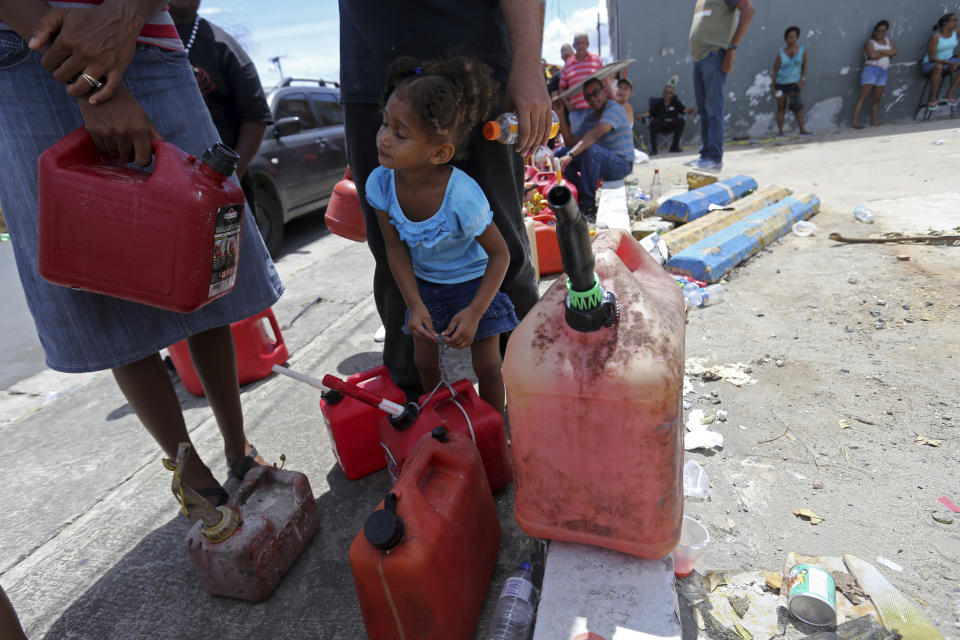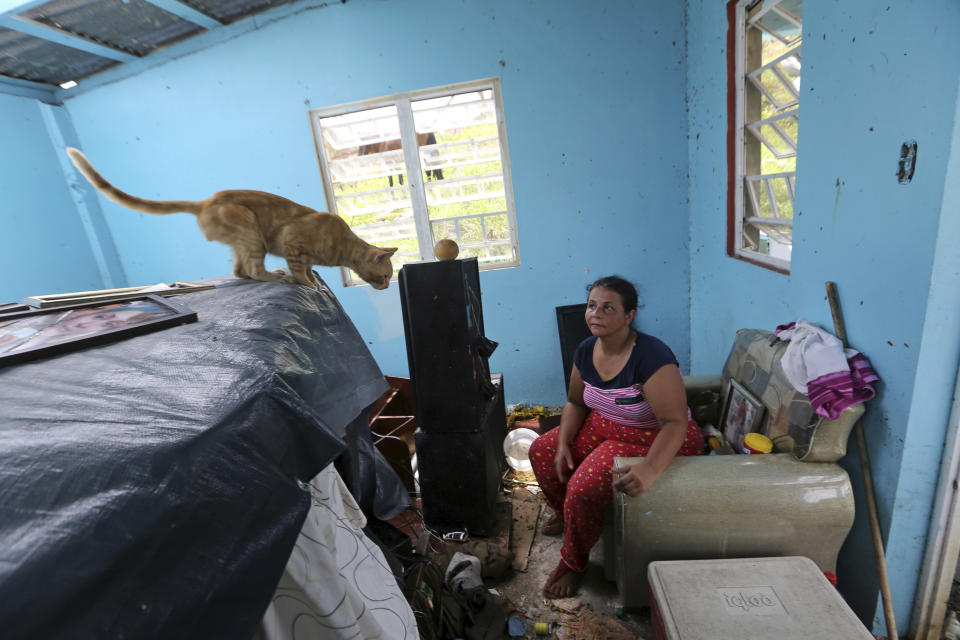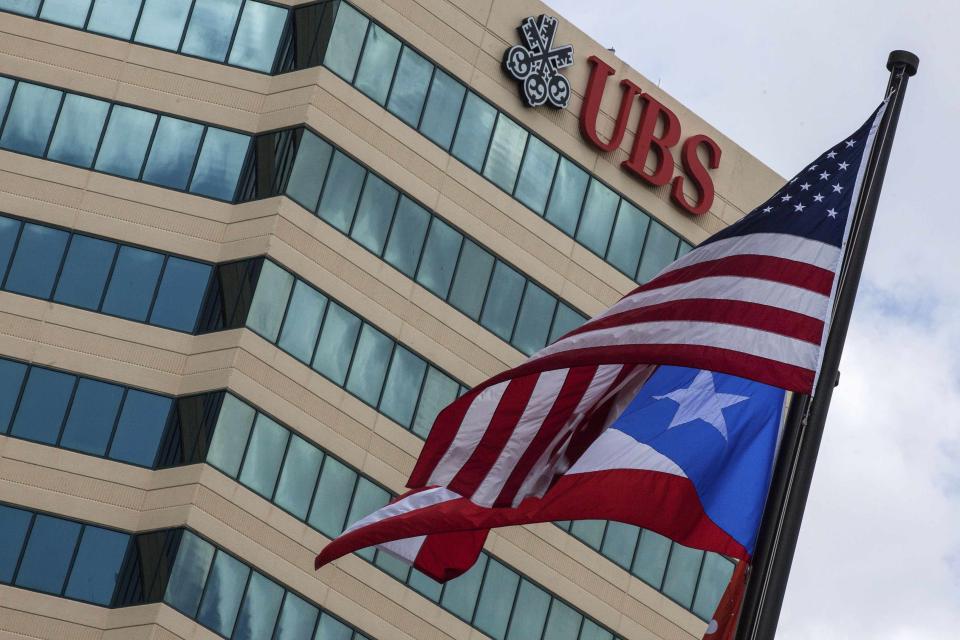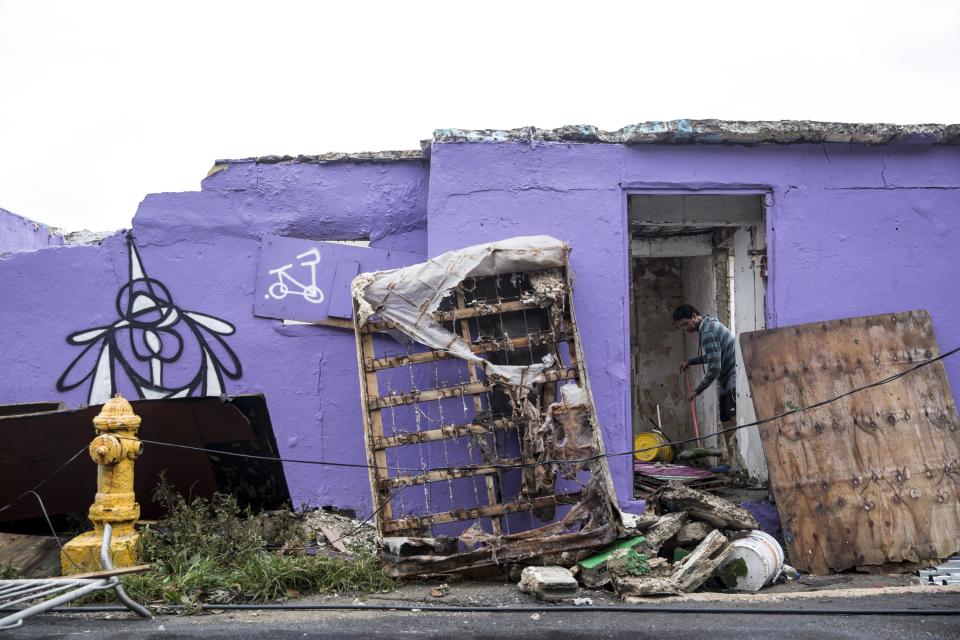The bold plan that could direct billions in aid to Puerto Rico

Around 3.4 million people in the U.S. were thrown back in time to a world without electricity, cell phones, landline phones, or gasoline when Hurricane Maria hit on Sept. 20.
A look at Puerto Rico from space, before and after the hurricane, says it all.
Top: Puerto Rico and U.S. Virgin Islands before Hurricane Maria
Bottom: After pic.twitter.com/JNdLeNYPG8
— Emily Atkin (@emorwee) September 25, 2017
A week following a massive power outage usually sees everything running smoothly. But why hasn’t that happened yet? To start with, the Puerto Rican Electric Power Authority (PREPA) was hit in the midst of a recovery from Hurricane Irma, which had raked the island just under two weeks prior.
But beyond that, the bigger reason the power is off is that PREPA has been running on fumes for a long time due to a severe lack of capital after the country’s decades-long financial struggles.
The storm, however, presents an opportunity — to be a catalyst for a major change for the island, if the Republican-led government can see it and act on it. One vision for this comes from David Kotok, CEO of Cumberland Advisors, a Florida-based advisory company with strong ties to Puerto Rico, who advocates for a modern-day Caribbean version of WWII’s Marshall Plan, a bold plan that could direct millions in aid to the ailing region.
The help: A modern-day Marshall Plan
The fact that Puerto Rico wasn’t the only region devastated by a hurricane — or even the only U.S. region — broadens the scope of how to fix the problem, which led Kotok to a Marshall Plan scenario, something that others like Richard Branson have suggested after Irma ripped through the Virgin Islands.
“The U.S. could help its two territory areas first. That’s the president’s ‘America First’ theme — an aid package that would be American oriented,” said Kotok. “And a supplemental one to lessen the geopolitical risk to the U.S. by being a supportive neighbor to island nations in the Caribbean.”

The program would be collaborative with other sovereign nations like France and the Netherlands, but it would rely on support and money from Congress and the president. But assuming that for a second they all are on board with the plan, it could be a positive thing for Puerto Rico, its creditors on Wall Street, and the country writ large, and could even restore some goodwill toward the U.S. internationally.
Kotok advocates leveraging overseas money as a potential funding source. A one-time repatriation tax benefit could be used, with certain strings attached that ensure Puerto Rican investment happens, say a lower tax rate for cash that ends up invested there.
“I don’t advocate for one minute giving the government in Puerto Rico free money without strings attached,” said Kotok. “They have a terrible history, so you can have rules: Money must be spent with U.S. firms; it has to be under U.S. law. There are elements you could construct but you could do it quickly and begin the process of rehab rapidly.”
Why the power is still off
Puerto Rico used to benefit from a special tax provision that made it very appealing for businesses. Without a voting member of Congress, the island had less taxation even though it had less representation. But in 1996, things changed.
“Congress sunset the provision with 10 years of notice,” said Kotok. “But the Puerto Rican government did nothing but borrow money while the economics changed. Now it’s run out of money, it’s bankrupt, it’s under federal oversight, and it’s trying to restructure its capital plan. It’s essentially exhausted its family silver, and along comes a hurricane with devastating results.”

The contrast with Houston and Florida is striking, due to the reserves those regions have that Puerto Rico does not. If Houston and Florida need to access the financial markets, they can borrow. Puerto Rico, however, cannot, which is why PREPA is bankrupt and has spent a good deal of time in court.
“Those that had claims and those who were in debt were in a fight when the pot was small, but liability was large,” said Kotok.
During this fight, no shoring up of the ancient power grid was possible, and after the hurricane, the money is even less there with more to fix. This makes federal help almost a necessity.
“They have been decimated by a natural force having previously suffered under 20 years of terrible governance,” he said. “The old politicians are gone, the young politicians now have to deal with a hurricane with no capital — and they need help.”
What a ‘Marshall Plan’ would mean for U.S. bonds
The hurricane is bad for bondholders, as it is for almost everyone. Money now that would have previously paid obligations must go to making the island habitable.
An aid package to Puerto Rico would not pay Puerto Rican bondholders, but it would be advantageous to those holding the island’s debt, who could shore up Wall Street support for some sort of a plan like Kotok’s.
“The bondholder that holds the bond in water authority, or electric utility would say, ‘Gee, an operating electric utility with customers is a much better place than a utility that can’t provide utility and doesn’t have customers who can pay,’” said Kotok.

In Kotok’s view, a Congressional package which had enough credibility to meet the requirements of the basic seed capital to create a foundation for solid supporting infrastructure would be seen favorably by those who watch the territory’s debt. A big part would be whether the federal government is involved and can provide any guarantees.
“With default risk reduced by federal guarantees, Puerto Rico could access a market. The market could look at the purpose of the funds, and if it included reconstruction of the utilities, investment may return,” said Kotok. “They’ll have customers with electric bills, when they pay they’ll have revenue, they’ll be able to amortize the debt.”
If nothing happens
The hurricane reconstruction could cost the island $15 billion to $50 billion, said Kotok. That entire sum isn’t required to get things back on track, however; $5 billion to $8 billion might be enough to provide the boost to put things on the right track and attract private investment to get the rest done.
But a scenario without any sort of comprehensive federal help is starkly different. It looks bad for bondholders and even worse for Puerto Ricans.
That recovery could take years, according to Kotok, and would involve work by private capital drawn by speculators looking to make a bargain from impoverished and distressed people. “That’s already happening,” he said. Kotok said that he has already had two conversations with two multi-millionaires who are pooling money for Puerto Rican property grabs.

Kotok points to how Puerto Rico Gov. Ricardo Rosselló and his mayors around the island are communicating — couriers on broken roads — as an illustration of Puerto Rico’s regression. No gas, no generators, no electricity, no airports, no ports, no sewage, no telephones. All of this slows things down considerably and retards the healing process.
“Several million people in dire straits suffer for many months, maybe years,” Kotok said. “Very slowly there is a return as speculators seize what they see as a real cheap opportunity because they are able to buy very stressed property and in essence take advantage of people who are distressed.”
The unpalatability of this option does boost the potential for a bipartisan moment, far-fetched as that seems in today’s political climate. But if Maria was a perfect storm, hitting an island head-on, so maybe the coincidence of massive stores of corporate money looking to be repatriated, a government that needs to get something done, 3.4 million American citizens living with broken infrastructure, and Wall Street debtholders on board.
“Maybe it takes two Category 5 hurricanes to be a catalyst for political change that should have happened 10 years ago,” said Kotok. “But you know what, better late than never.”
Ethan Wolff-Mann is a writer at Yahoo Finance. Follow him on Twitter @ewolffmann. Confidential tip line: [email protected].
Read More:
How Belgium deals with credit without companies like Equifax
Big bitcoin-friendly companies like Microsoft and Expedia hedge their bet
This website lets you sue Equifax for free without a lawyer with a few clicks
There’s a line in the new Equifax fine print that’s raising eyebrows
The real reason Mexico will never pay for the Trump’s wall: It’d be ‘treason’
How Waffle House’s hurricane response team prepares for disaster
Trump weighs slashing one of the most popular tax deductions
A robot lawyer can fight your parking tickets and much more
Consumer watchdog is making it easier for consumers to sue banks